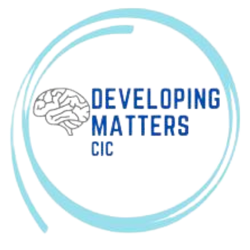Accredited Training for School Staff:
Become a Mindful and Wellbeing Practitioner
Research is showing the benefits of young people being more mindful and having the tools and techniques to support their own mental health and wellbeing. Mindful and wellbeing strategies can help to reduce anxiety, improve social skills, increase awareness and attention and also give young people an understanding of their own thoughts, feelings and behaviours.
Every young person would benefit from some level of intervention for their mental health and wellbeing, unfortunately this would be expensive for schools to pay for a specialist to come into a school and work with specific pupils. Therefore, this course has been designed to bridge this gap of support, and enable any school staff to learn about wellbeing, the brain, thoughts, feelings and behaviours and much more and be a supportive staff member for their pupils during their time at school. Although having a specialist practitioner is valuable for some young people, their contact time in school will be limited and pupils will still need learning and support once their short intervention is complete.

The current training course will give you the resource to deliver a 9-moduled Mindful and Wellbeing Course to pupils in Year 5 and 6 either as a whole class, small groups or 1:1, or Year 7 and 8 as a supportive intervention in small groups or 1:1. The pages in the course manual for pupils has been designed to also be used as separate worksheets, so any page can be printed off and used as a stand-alone session. The content of the manual has extensive information for you to teach young people a great deal about themselves and can be built into your RSE planning throughout the year.
The modules are:
- Module 1 – Mindful Wellbeing
- Module 2 – Fight, Flight, Freeze
- Module 3 – The Busy Mind
- Module 4 – Stress
- Module 5 – Thoughts
- Module 6 – Thoughts, Feelings and Behaviours
- Module 7 – Triggers and Choices
- Module 8 – Happiness and Kindness
- Module 9 – Acceptance

Access The Teacher Training Course Now
Training Content
This training is for any school staff who wants to support, develop, and enhance young people’s mental health and overall wellbeing. To empower young people to have an understanding of their own thoughts, feelings, and behaviours and have simple yet effective mindful techniques to support them
with self-regulation, life transitions, stresses, and worries. The course manual is suitable for pupils from Year 5 up to Year 8 and beyond depending on ability and preference to learning. College students and adults have also enjoyed learning the content of the course.
- 4 sections of learning and guidance to achieve accreditation as a Mindful and Wellbeing Practitioner. This learning includes information about mental health and wellbeing in schools and how to teach mindful moments, breathing techniques and their importance. There is also information and guidance for each module you will be teaching young people.
- A comprehensive 9-moduled Mindful and Wellbeing Course Manual for you to work through with young people. Lifetime use of the PDF Mindful and Wellbeing Course Manual to work with pupils with 45 mindful and wellbeing sessions and 45 follow-up activities, 7 mindful moment activities and 2 mindful moments to create, plus 9 breathing techniques.
- Documents for the RSE Wellbeing Objectives, 5 Ways to Wellbeing Objectives, and the Mindful and Wellbeing Course Objectives to help you with planning and assessments for wellbeing with your pupils.
- The option of two online guidance sessions or one visit to your school (locality-dependent).
- Ultimate flexibility, learn and deliver sessions and activities at your own pace.
- Accreditation certificate for 15 hours of CPD to achieve becoming a Mindful and Wellbeing Practitioner with Developing Matters CIC.
- Skills to support young people as a preventative of poor mental health or to support young people who are struggling with worries, busy minds, and difficult life transitions or events.
- The 45 sessions and 45 follow-up activities can be used stand-alone as part of opening discussions, lesson plans, mental health awareness days, assemblies, or a starting point for school staff wellbeing and mental health planning.
